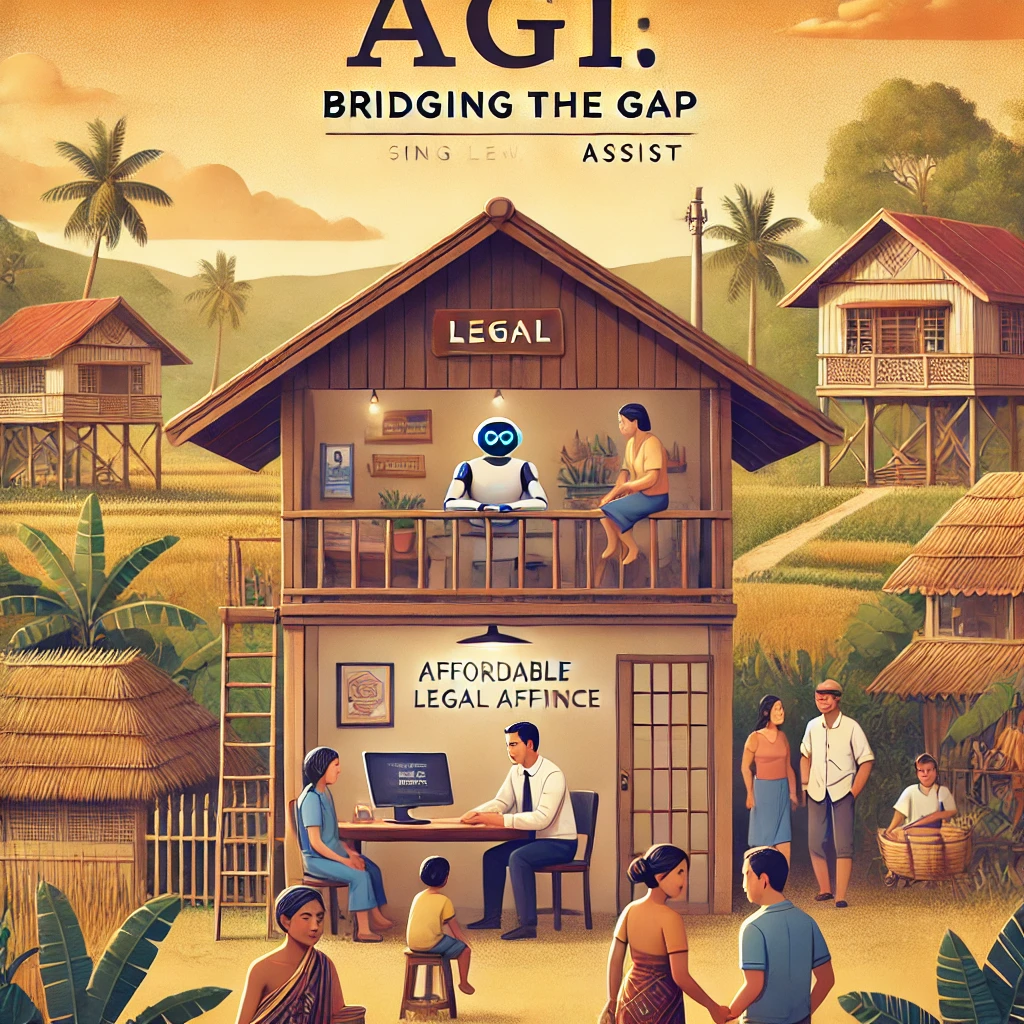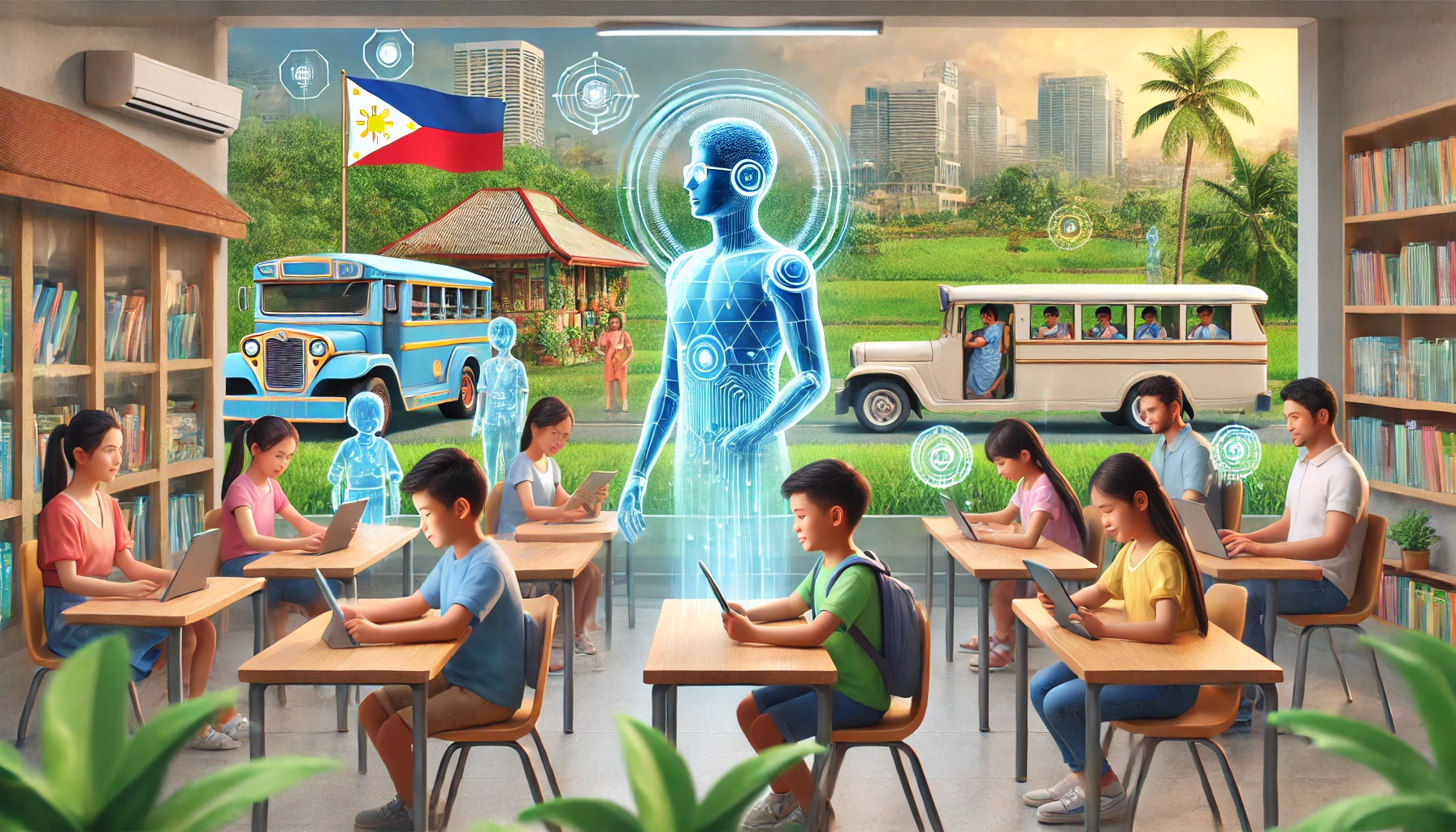Access to legal assistance in the Philippines remains a challenge, particularly for Filipinos in underserved and rural areas. The costs associated with legal services, the scarcity of lawyers in remote regions, and the complexity of navigating the justice system create barriers for many. However, advancements in Artificial General Intelligence (AGI) hold transformative potential to address these challenges. Here’s how AGI can democratize legal assistance in the Philippines:
1. Offering Affordable Legal Consultation
AGI systems can provide Filipinos with instant legal advice at a fraction of the cost of traditional services. By analyzing local laws, AGI can:
- Simplify legal jargon: Explain complex laws and rights in Filipino and regional dialects, making them accessible to non-experts.
- Answer common legal queries: Provide accurate and context-specific answers to frequently asked legal questions, such as labor rights, tenancy issues, and small claims processes.
- Create tailored solutions: Generate documents like contracts, affidavits, and complaint letters that adhere to Philippine legal standards.
2. Enhancing Access in Remote Areas
Filipinos in geographically isolated areas often face limited access to lawyers and legal institutions. AGI can bridge this gap through:
- Mobile platforms: AGI-driven legal apps accessible on smartphones can deliver instant support to users without requiring physical travel.
- 24/7 availability: Always-on services ensure that legal help is available at any time, even during emergencies.
- Offline functionality: Apps with offline capabilities can provide pre-loaded legal resources and tools for areas with poor internet connectivity.
3. Empowering Pro Bono Services
While some legal aid organizations exist, their resources are often stretched thin. AGI can augment these efforts by:
- Assisting paralegals and volunteers: Equipping them with automated tools for research, drafting, and case preparation.
- Scaling operations: Allowing legal aid groups to handle a larger number of cases efficiently through AGI-powered triage systems.
- Promoting collaboration: Connecting individuals with available human lawyers for complex cases via referrals.
4. Promoting Transparency and Accountability
Legal systems can be intimidating, and Filipinos often fear engaging with institutions due to potential corruption or bias. AGI can:
- Monitor cases impartially: Provide transparency in processes like tracking case progress and ensuring deadlines are met.
- Reduce reliance on intermediaries: Empower users to file complaints and motions directly without needing third-party representation.
- Educate citizens: Inform users about their rights and the proper channels for resolving disputes.
5. Tailored Solutions for Filipino Communities
AGI can cater to the unique legal challenges faced by Filipinos, such as:
- OFW issues: Assisting Overseas Filipino Workers with contract disputes, unpaid wages, and repatriation cases.
- Land and inheritance disputes: Guiding rural communities in resolving conflicts over ancestral domains and property claims.
- Consumer protection: Helping individuals file complaints against scams, fraud, or defective products.
6. Addressing Barriers Through Multilingual Support
The Philippines is home to over 120 languages, making effective communication a challenge. AGI can support multilingual legal assistance, translating legal terms into native dialects like Cebuano, Ilocano, or Waray, ensuring inclusivity.
7. Ensuring Privacy and Ethical Compliance
For AGI to gain trust, it must adhere to strict ethical standards, including:
- Data privacy: Protecting sensitive personal information through secure systems compliant with Philippine data protection laws.
- Impartiality: Providing unbiased advice without favoring specific parties or outcomes.
- Human oversight: Allowing users to escalate their issues to human lawyers for complex or high-stakes cases.
8. The Role of Partnerships
Collaboration between technology providers, legal institutions, and government agencies is crucial. AGI-driven initiatives can be integrated into barangay (village) centers, schools, or public libraries to extend reach and promote adoption.
Conclusion
AGI presents an unprecedented opportunity to make legal assistance more affordable, accessible, and effective for Filipinos, particularly in underserved areas. By empowering individuals and communities with AI-driven tools, the technology can reduce barriers to justice, foster social equity, and pave the way for a more inclusive legal system in the Philippines.
[SEO optimized]


